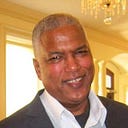My Long and Varied History of Playing Card Games
Some People Live to Play Cards, Others Play Cards to Live
One of the most Minnesota things about me is that in high school, I skipped class to play Bridge. My high school was about 85% white, and during my junior year, I would often play poker with a mixed group of friends during lunch period and Bridge the following hour when I should have been in class with a group of white seniors. I eventually got in trouble, and all card playing came to an abrupt albeit temporary halt. Only after I got a fair education in playing Bridge.
Black people do play bridge, though in far lesser numbers percentage-wise than white people. Bridge has many rules called conventions that dictate what to bid based on what’s in your hand. It’s generally a quiet game that wouldn’t be out of place in a library. I credit Bridge as an excellent foundation for spades, bid whist, and pinochle, which I’ll get to later.
I mentioned poker, which did mean gambling. One might wonder about the propriety of open gambling with money on the table in the school lunchroom, but it’s what we did. The dealer picked the game, and I learned five-card stud…

